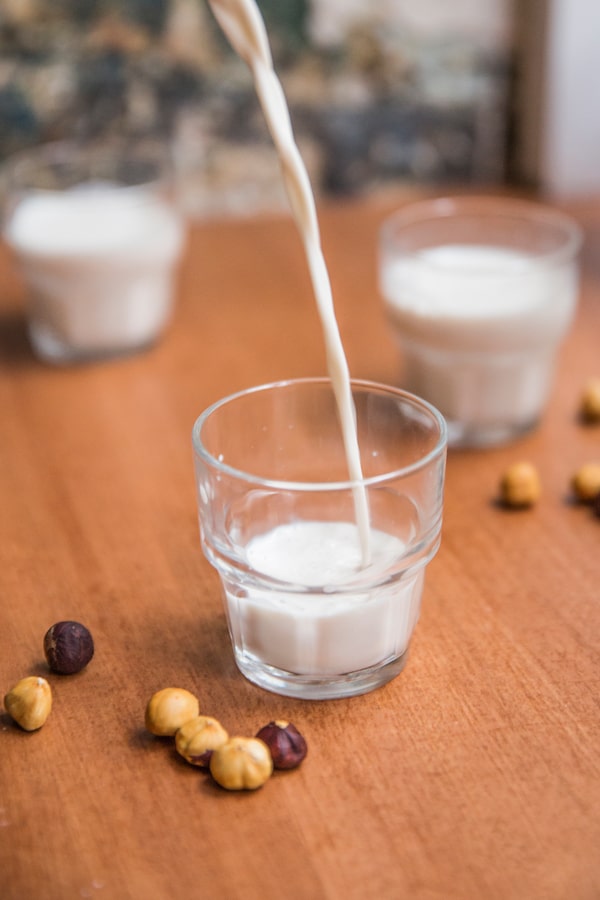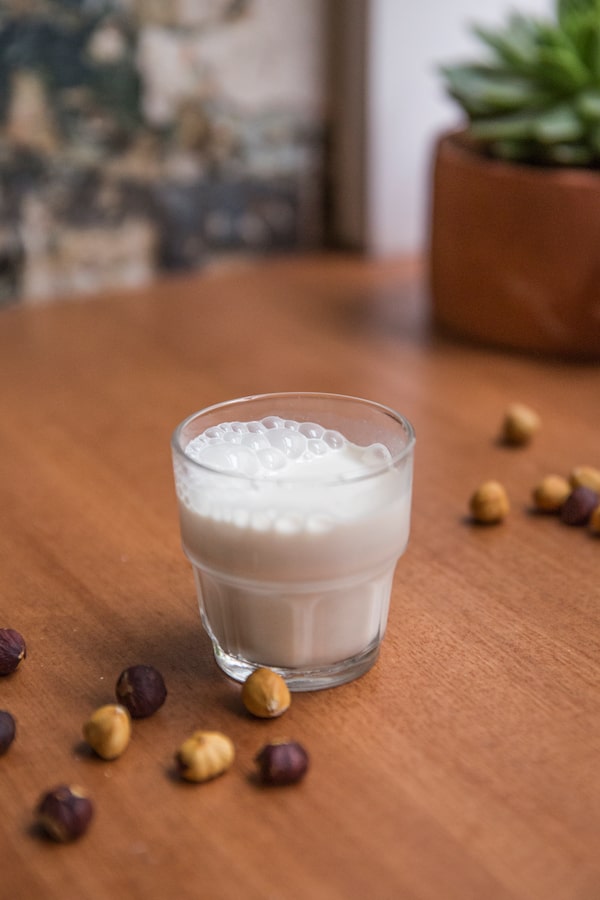
This hazelnut milk is sweetened with Medjool dates.Lina Caschetto/The Globe and Mail
As a chef with relatively traditional training, alternative milk, or “mylk” as it is sometimes called, is not the go-to in my kitchen. Call me old school, but the milk I use is more likely to come from a cow than a handful of almonds.
But what I drink is a different story. I have never been huge on drinking dairy, even if the odd ice-cold glass of raw cow’s milk (which is legal in France) does sometimes hit the spot, especially alongside freshly baked cookies. But, as a general rule, I am inclined to skip it. I live without it in my coffee and will always be more of an egg-on-toast person than a milk-sogged cereal one.
Lately, though, due to emerging milk-alternatives, I have been exploring some of the options. The choices here in France are fairly limited. Almost all the ones I have come across have been heavily pasteurized and Tetra-packed, and they all seem to include some kind of stabilizer or preservative. My cook’s intuition immediately noted this as a red flag.
My questions about these non-dairy alternatives multiplied. For example, when I buy milk at the store, I always seek out the freshest organic milk I can get my hands on. Why would I settle for less when it comes to a non-dairy one? Pasteurizing and preserving milk, cow’s or otherwise, seems at odds with the appeal of a beverage that is naturally fresh to begin with. Then, there’s the question of how all that processing affects nutrition.
I went to my friend Lauren Elbe for answers. She is the owner of Nuez, a company based in Vancouver that makes fresh and fresh-frozen concentrated, organic nut milks. I have known Lauren for about six years, ever since she approached me about using her product in the restaurant where I was working. A budding young entrepreneur at the time, her product vision was miles ahead of anything else on the market: fresh nut milk, made with local and organic nuts and no fillers.
Elbe’s passion for what she refers to as “real food” is impressive. She is a staunch supporter of making things from scratch and is hugely concerned with food security and nutrition. Her mission is to close the gap in our food system, bringing people closer to where their food actually comes from. I find this important and inspiring.
When it comes to nut milk, and in particular those of the Tetra-packed variety, Elbe says, “It seems crazy to drink something that is supposed to be healthy, but is really full of nothing.” She explained that the main reason nut milk is so good for you is because it is high in natural fibre, fats and minerals, all of which are helpful with digestion. But much of the processed non-dairy milk you buy at the store, according to Elbe, has been filtered, pasteurized and pumped full of fillers and preservatives.
My intuition had been on point.
So why don’t more companies make and sell unadulterated nut milk? Elbe suggests it is likely because of its short shelf life (usually only about four days). This would understandably be tough, not to mention inconvenient, for both producer and consumer. As an alternative, Elbe proposes making it yourself to see how easy and delicious it is.
After giving it a go, I have to agree. There really is no comparison. Elbe’s recipe for hazelnut milk is so easy to make you will wonder why you were ever buying the store-bought stuff. It is lightly sweetened with the addition of dates, which are an excellent substitute for refined sugar. Like the nuts, they are also naturally high in fibre and have a low-glycemic index. If you prefer an unsweetened version, feel free to leave them out.
For this recipe, Lauren recommends soaking the nuts for at least a couple hours, or ideally, overnight. This important step reduces their natural astringency and bitterness, as well as breaks down the natural phytic acid on their surface, which can make digestion and nutrient absorption difficult. Do not skip the soaking.
It should go without saying that local and organic nuts would be the ideal choice for this recipe, but start with what you can afford and is available, knowing that you’re still better off than consuming a heavily processed version.
Lauren Elbe’s Fresh Hazelnut Milk

Lina Caschetto/The Globe and Mail
Ingredients (makes 1 litre)
- 1 ½ cups local organic hazelnuts
- 1 litre filtered water, plus more for soaking
- 6 pitted Medjool dates
Cover and soak hazelnuts in filtered water overnight at room temperature.
Strain the nuts and rinse them under running water. Discard the soaking liquid.
Add the nuts, 1 litre of filtered water and the pitted dates to a high-speed blender. Blend on high until the nuts and the dates are completely liquified.
Pour the liquid through a strainer lined with a nut milk bag, a piece of linen or some cheesecloth.
Allow gravity to do most of the work by letting the mixture strain for 5 to 10 minutes. Squeeze any remaining liquid out after that.
Consume immediately or store in the fridge for up to 4 days.
Live your best. We have a daily Life & Arts newsletter, providing you with our latest stories on health, travel, food and culture. Sign up today.